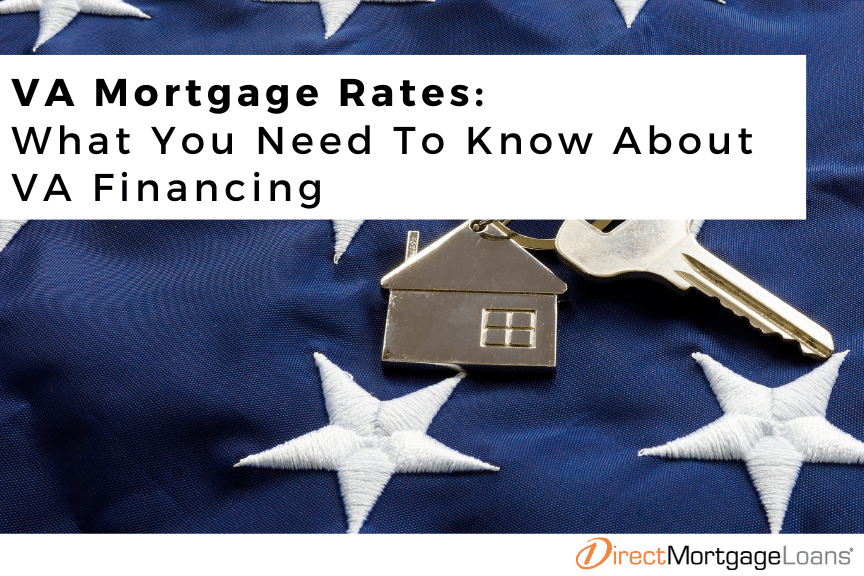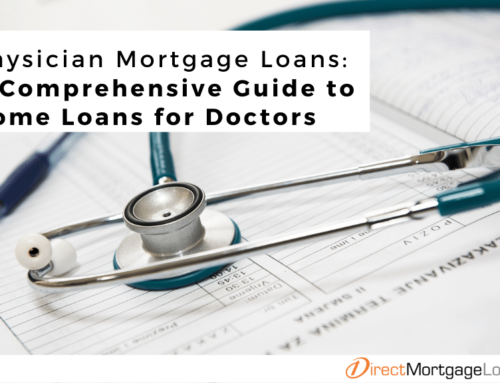Have you served your country and dreamed of owning a home? A VA loan could be the key to unlocking your path to homeownership. These government-backed mortgages offer a unique set of advantages for veterans, active-duty service members, and their families. In this blog, we’ll break down how they work and highlight the benefits that could make buying a home more affordable.
Subscribe to our blog to receive notifications of posts that interest you!
What is the interest rate on a VA mortgage loan today?
The interest rates for VA mortgage loans vary based on factors like credit score and loan term. Although we cannot provide a specific rate without a complete application, our knowledgeable Loan Officers can offer you a free rate quote. They will review your individual circumstances and assist you through the entire process of acquiring a VA loan.
VA Home Loan Overview
A VA loan is a flexible, zero down payment loan option which eligible borrowers could take advantage of to purchase a home or refinance an existing mortgage. These loans offer a variety of benefits and typically come with a lower interest rate compared to other types of mortgage loans.
What is a VA loan?
VA loans are a government-backed mortgage program specifically designed for veterans, active-duty service members, and eligible surviving spouses. Unlike conventional loans which follow Fannie Mae and Freddie Mac guidelines, VA loans are partially guaranteed by the Department of Veterans Affairs (VA). This allows private lenders, like Direct Mortgage Loans, to offer more favorable terms.
Eligibility
To qualify for a VA loan, you need to obtain a Certificate of Eligibility (COE) from the Department of Veterans Affairs (VA). This certificate confirms your eligibility to lenders based on your military service history. It typically only takes a few minutes and can be completed online through the VA’s eBenefits portal.
VA Loan Requirements
To obtain your Certificate of Eligibility (COE), you need to meet one of the following requirements:
- Served 90 consecutive days of active service during wartime.
- Served 181 consecutive days of active service (not during wartime).
- Have 6 years of service in the National Guard or Reserves.
- Be the spouse of a service member who passed away during duty or due to a service-related disability.
There are additional factors which may make you eligible for VA loans, including discharges for hardship, government convenience, reduction in force, medical reasons, or early discharge after 21 months of a 2-year enlistment.
Benefits of a VA Loan
VA loans provide several benefits to veterans and eligible service members looking to purchase a home. They eliminate the need for a down payment, allowing you to finance 100% of the purchase price. Moreover, these loans do not require private mortgage insurance (PMI), which could substantially reduce your monthly payments. Furthermore, VA loans are assumable, meaning that in certain circumstances, a qualified buyer could take over a VA loan, providing flexibility when selling.
Who determines current VA mortgage rates?
Unlike some other loan programs, the Department of Veterans Affairs (VA) does not set interest rates for VA loans. Instead, private lenders, like banks and mortgage companies, set their own rates based on various factors. However, the VA’s guarantee on a portion of the loan reduces risk for lenders, which could incentivize them to offer more competitive rates compared to conventional loans.
How are current VA mortgage rates set?
VA mortgage rates depend on both the overall economy and your personal financial situation. Economic factors like inflation, job growth, and the housing market affect lending risk and cause rates to change. Lenders also consider your credit score, debt-to-income ratio, and the length of your loan when setting your specific rate.
VA Home Loan vs Conventional Loan
The main difference between conventional loans and VA loans lies in who finances the mortgage. Conventional loans are financed entirely by private lenders like banks and credit unions. On the other hand, VA loans are partially guaranteed by the Department of Veterans Affairs (VA). This government support allows lenders to offer more favorable loan terms.
Additionally, conventional loans typically require a down payment ranging from 3.5% to 20% of the purchase price. If you put down less than 20% of a down payment, then you are required to pay Private Mortgage Insurance (PMI). In contrast, VA loans eliminate the need for a down payment and do not require PMI.
VA Loan Pros and Cons
To make the best choice for your dream home, VA loans offer several benefits. We’ll also explore some additional considerations to ensure you have all the information you need.
Pros
- No Down Payment Required: Unlike conventional or FHA loans which require a down payment, VA loans allow qualified veterans to finance 100% of the appraised value of the home.
- No Private Mortgage Insurance (PMI): Typically, borrowers who put less than 20% down on a conventional loan are required to pay PMI. VA loans eliminate this extra cost, potentially saving you thousands of dollars over the life of the loan.
- Easier Credit Qualification: There is no minimum credit score requirement for VA loans. Instead, lenders consider your entire financial profile, including debt-to-income ratio and credit history, which could be beneficial for veterans who may not have a perfect credit score.
- No Prepayment Penalty: There’s no penalty for paying off your VA loan early. This could allow you to save on interest and potentially reach your financial goals faster.
- Flexible Property Options: VA loans can be used to finance various property types, including single-family homes, townhouses, condos, and even certain manufactured homes meeting VA guidelines.
Cons
- Primary Residence Only: Restricted to financing primary residences. If you’re looking to purchase a second home or investment property, then you’ll need to explore other loan options.
- VA Funding Fee: Borrowers are required to pay a VA Funding Fee, which helps sustain the VA loan program. This fee can be financed into the loan amount, but it’s important to factor it into your overall closing costs.
- Limited Eligibility: These loans are specifically designed for veterans and eligible surviving spouses, limiting the program’s eligibility.
- Lower Starting Equity: Since a down payment isn’t required, you’ll initially have less equity in your home. This can be a disadvantage if you need to sell your home before you’ve built up significant equity.
FAQ’s About Current VA Home Loan Rates
Are VA Mortgage rates going down or up?
VA mortgage rates, like all mortgage rates, are influenced by the overall economy and Federal Reserve interest rates. This means predicting their exact direction can be tricky. For veterans considering a VA loan, it’s best to stay informed about current trends and speak with a Loan Officer to understand how your individual financial situation might affect the specific rate you’re offered.
Do VA home loans have higher interest rates?
VA loans are known for their competitive interest rates and are typically lower than conventional loans. In some cases, VA rates could be slightly lower even when compared to other government-backed options, like an FHA loans.
Are VA mortgage rates better than conventional?
VA mortgage rates are usually lower than conventional loans because the Department of Veterans Affairs guarantees a portion of the loan. This government backing makes VA loans less risky for lenders, allowing them to offer more competitive interest rates.
Can I reduce my interest rate by refinancing my VA loan?
As a veteran, if you’re looking to lower the interest rate on your VA loan through refinancing, then there are two options available to you. The first option is a VA Streamline Refinance (IRRRL), which enables homeowners to refinance their existing VA loan to a new VA loan with a lower interest rate. This option generally involves less paperwork and is faster compared to standard refinancing.
The second option is a VA Cash-Out Refinance, which allows you to access your home equity by converting a portion of it into cash. The funds obtained can be used for purposes like debt consolidation, home improvements, or unexpected expenses.
How can I get the best VA loan interest rate today?
To secure a favorable interest rate on a VA loan, it’s important to ensure that your financial situation is in good standing. This could be achieved by paying down your debts, like credit card balances, to improve your debt-to-income ratio (DTI). It’s also important that you pay all your bills on time and regularly check your credit report.
Rates are subject to change. Eligibility and approval is subject to completion of an application and verification of home ownership, occupancy, title, income, employment, credit, home value, collateral and underwriting requirements. Direct Mortgage Loans, LLC NMLS ID# is 832799 (www.nmlsconsumeraccess.com). Direct Mortgage Loans, LLC office is located at 11011 McCormick Rd Ste 400, Hunt Valley, MD 21031.






Leave A Comment
You must be logged in to post a comment.